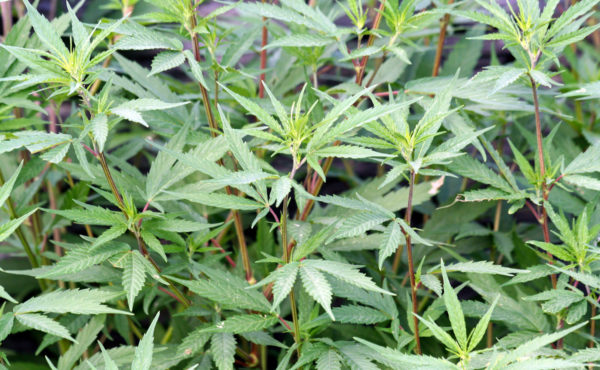But make sure to read the fine print

M. Martin Vicente via flickr (photo)
As of Oct. 17, cannabis is legal in Canada. So what does that mean for people who were arrested for possession when this drug was illegal, though? At least 500 000 Canadians carry a criminal record for possession, according to a study done in 2014 by the Canadian Nurses Association. For all those people, what happens now?
In a press conference on Oct. 17, Public Safety Minister Ralph Goodale confirmed that the Liberal government will be introducing legislation for pardons.
“We will be introducing a new law to make things fairer for Canadians who have been convicted for possession of cannabis,” Goodale said. “It becomes a matter of basic fairness when older laws from a previous era are changed.”
Under current laws, the cost to apply for a criminal pardon is $631, and previously the punishment for simple possession of cannabis was a $1 000 fine and up to six months of jail time.
The suggested legislation is expected to be passed by the end of this year — although this is merely an estimate by Goodale.
“The law changed at midnight last night,” Goodale said in the press release. “We are announcing this morning the first steps toward implementing the appropriate pardon process for those with previous charges of simple possession.”
A pardon doesn’t completely expunge someone’s criminal record.
It’s important to note that the proposed legislation applies only to people charged with what the government defines as ‘simple possession,’ or 30 grams or less. Anyone convicted of possession of over this amount can still apply for a pardon, but they will have to pay the full fee.
Another distinction to make is that a pardon doesn’t completely expunge someone’s criminal record. Rather, the pardon sets the criminal record aside, and removes it from active criminal records. But the criminal record still exists, and can cause issues for people when applying for a job or loan.
Goodale was asked during the press release why complete expungement of criminal records wasn’t on the table, when in comparison, Bill C-66 allowed criminal records of the LGBTQ2+ community to be expunged for having consensual sex with same-sex partners when it was previously a criminal offence in Canada.
Goodale responded, “The laws with respect to cannabis that have existed historically we believe are out of step with current mores and views in Canada but are not of the same nature as the historic social injustice that was imposed in relation to the LGBTQ2 community … The difference here is the nature of the offence.”
His response was criticized by the NDP, who are calling for complete expungement of criminal records pertaining to convictions for past possession. Murray Rankin, Justice Critic with the NDP, said the response was “half-baked” and that without complete expungement, the barriers that come with having a criminal record will still exist.
The government has acknowledged that some communities have been more affected by the way cannabis laws have been applied than others.
If someone got a pardon with the suggested legislation, they would still have to check ‘yes’ on forms that ask if you have a criminal record, like applying for certain jobs.
Even with a pardon, a person will be limited as to where they can travel. Entry and exit requirements are still dependent on each country’s individual laws, not Canada’s. Other countries will still have the ability to see that a pardon has been granted to a Canadian and will still be able to deny entry as they see fit, as that person will still have a criminal record — pardon or not.
U.S. officials have implied as much. “We don’t recognize the Canadian amnesty. If you’ve been the subject of a violation of U.S. laws, that will still make you inadmissible to our country,” said Todd Owen, Assistant Commissioner of Field Operations at U.S. Customs and Border Protection.
The government has acknowledged that some communities (such as minority groups) have been more affected by the way cannabis laws have been applied than others — part of the motivation to provide free and immediate access to pardons in the first place.
The legislation to begin granting these pardons has yet to be passed in the House of Commons and Senate, so that will be the first step in implementing this expedited process.







